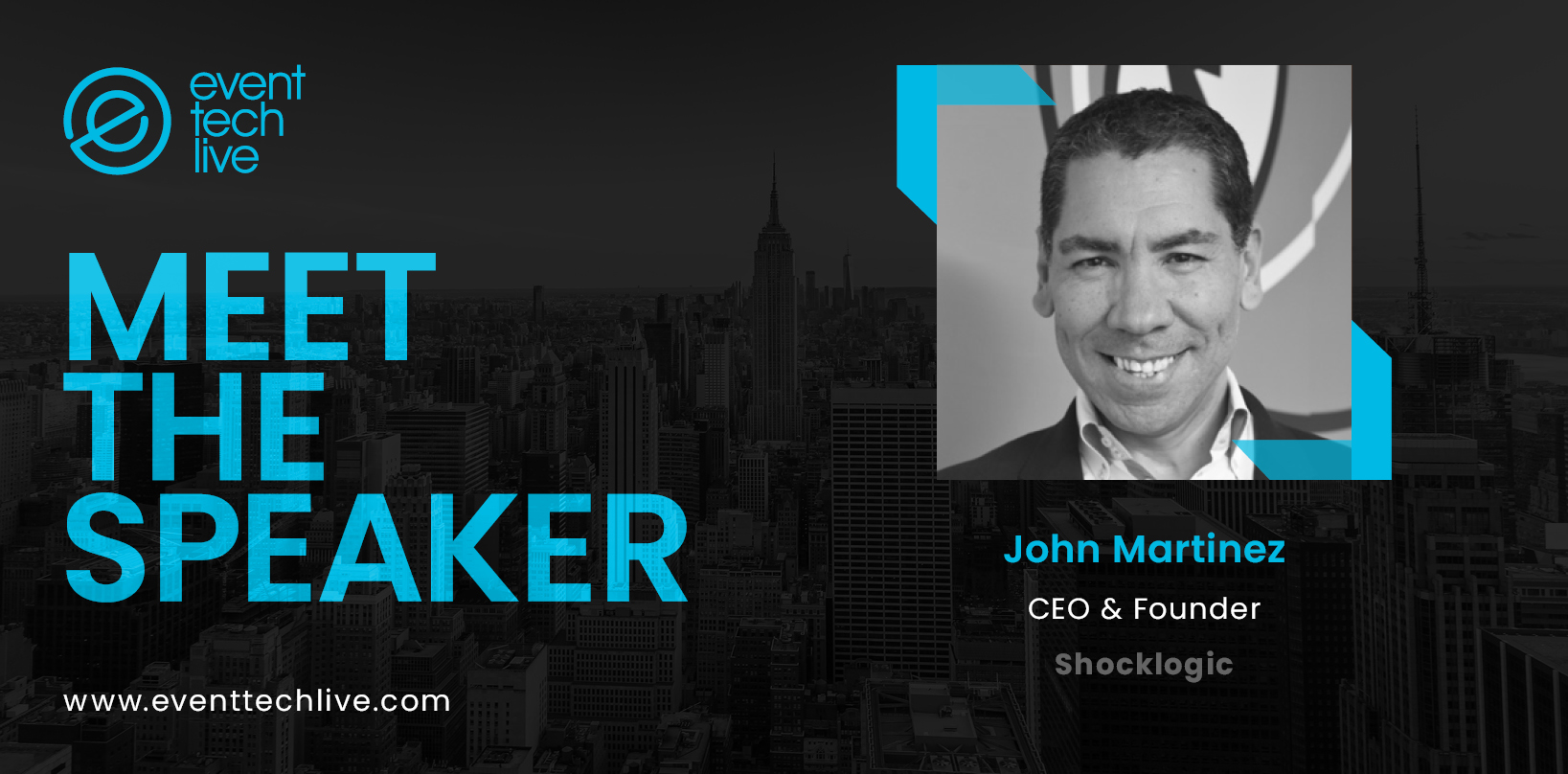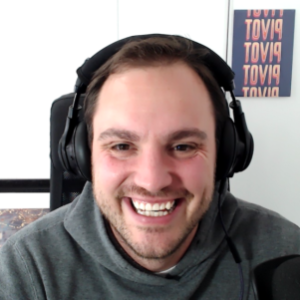| John has over 30 years experience in the events industry as a PCO and technology specialist. He spent the first 14 years of his career as a PCO, before founding Shocklogic in 1997, where he now leads an international team to deliver event management technology. John has a PHD in Quantum Physics from MIT and has previously been named as one of the “Top 100 Movers & Shakers in Events” by Eventbrite. In 2020, he was also listed as one of the “Top 100 Most Influential People in the Event Industry”, and the “Top 50 Virtual Meetings & Events Innovators” by Eventex. |
- How long have you worked in the events industry and what keeps you interested in it?
I’ve been in this industry for over 30 years and founded Shocklogic nearly 25 years ago. I believe that people attend events for three main reasons. The first is to connect with other people. The second is to distribute content, whether it’s music, poetry, science, or marketing, and the third is to create experiences and emotions, and it’s this possibility which I find really addictive, seeing all the smiles and positive energy. I love solving complex algorithms, and there’s nothing more interesting and more complex than the human algorithm. It’s something that comes out a lot at events, when we’re dealing with so many moving pieces, our teams and partners, sales, customers, and attendees. It’s such a wonderful mesh of interests and needs and problems to solve that keeps us constantly on our toes. - Best (and worst?) moments working in the events industry?
Best: There are so many great moments. Before starting Shocklogic, I worked as a PCO for 14 years and during that period, something that stands out is being in a meeting with Nelson Mandela where he was asking me questions directly and seeing me as the ‘expert’ in the room. I was elated.
Worst: It is hard to think in that way as it is not the way my brain works. My brain tends to convert difficult situations and challenges into moments of growth and opportunities. But one memorable moment came when I was organising a medical conference in Latin America and there was a coup, an attempt to overthrow the government. It actually happened right after a hail storm and a flood, and we were all thinking, ‘okay, well, at least nothing else can go wrong’. But two or three days later, we had this insurrection, with gunfire and martial law, guys in green uniforms with AK47s, and military jets breaking the sound barrier overhead, and I had 3,500 doctors that I needed to get out of the country ASAP! I don’t want to call it the ‘worst’ moment, but it was certainly a very dire situation, and very exciting! - What was the last event on which you worked?
We’ve just had two events finish at the same time, actually. One of them was a virtual conference for a Latin American ophthalmology association. It was successful in every possible way. We had 59 internationally invited speakers, which would have been impossible for this association under other circumstances. Everyone is absolutely elated, gobsmacked at how well it went, and we are so excited about our relationship with this client.
The other was a conference for the Society of Cardiothoracic Surgery, who’ve been our client for several years, and we have a wonderful relationship with them. It was intended to be a face-to-face event in 2021 but was postponed, and in the end we were forced to do it virtually. This year the event involved nearly 1000 surgeons and was another absolute success. - From your experience, what’s the best way to utilise tech at an event?
I think that tech, by itself, is nothing. The magic comes from the combination of tech and processes. This is what improves the experience, for organisers, attendees, speakers, for everyone involved. We can use high-tech, low-tech, or no tech — tech can be anything. Once upon a time, a book was tech, right? Back when we had scrolls, the invention of the book improved our experience, and it’s the end experience which is key. So I think it’s about the application. Any time tech is applied in a way that makes things work and improves the experience, I’m excited. - We all learn from our mistakes! What was the biggest lesson you learned from a mistake since being in the industry?
We were organizing a conference in Holland one time that involved an appearance by the Queen of the Netherlands, and it was my job to announce the queen’s entrance as she came into the auditorium. As you can imagine, the protocol around these appearances is very detailed and strict; once the queen starts walking, she doesn’t stop. So I’m on stage and I can hear on my radio that she’s 50 seconds away from the entrance. I tap the microphone and realise there’s no sound. So I look up and try to give a sign to the sound technician, but he makes a gesture like ‘who are you, what are you doing there?’ I keep gesturing, but still no sound, and the radio is telling me that she’s getting closer and closer. The technician didn’t know the script, and his radio wasn’t working, so he wasn’t getting the messages. But finally, right as the queen was entering the auditorium the sound came on and I was able to tell everyone to stand and then introduce her. The experience only lasted about 20 seconds but it was very intense. So the lesson learned is that communication is vital. Keep absolutely everyone informed. Make sure everyone involved knows all the details of what’s going to happen so there can be no confusion. - What are you most looking forward to at Event Tech Live?
We live in a highly connected world, and at Shocklogic we believe very strongly in sharing and learning. So we’re looking forward to the opportunities for these things at Event Tech Live, to learning from our attendees, peers, and exhibitors, and sharing our experiences with them as well. - What do events, such as ETL, mean to you?
As an exhibitor, ETL provides a platform for companies like us to showcase our products and innovations, to connect with both existing customers who visit ETL regularly and to connect with potential new customers as well. Connecting with peers also allows us to learn from them and from their experiences, which is especially important right now with the changing circumstances of the pandemic. By sharing our experiences we can learn how we can help and support each other.
As a speaker, this kind of event is important for similar reasons, learning and sharing are so important. - What can our delegates expect to take away from your session at ETL?
We’re passionate about simplifying the lives of event organisers, and we do this through software, technology, and services. So delegates can expect something they haven’t heard before, and they can expect honesty and integrity, real world experiences and knowledge that they can apply to their everyday work. We’re very pragmatic, and we have a lot to share about the lessons we’ve learned and how we have navigated the changing circumstances over the last year. - Which one piece of tech couldn’t you live without?
I’m sure it’s the same for many people, but I would find it very difficult to live without my phone and all the apps that go with it. This kind of tech has so many positives, gives us so many opportunities, helps us to simplify our lives in so many ways and do our jobs better. I’m able to connect so easily with friends, family, and peers all over the world, and even have video conferences with them from anywhere. All of this was impossible just a few years ago. - Most pointless tech you have purchased?
I once bought a headset that was supposed to be invisible. It was totally transparent and fit into the ear so that no one could see it. But it just didn’t work. It was too small, and the technology just wasn’t there for it to transmit in the way it was supposed to. It really wasn’t very clever.
Join John for his session: Reimagining virtual and hybrid events:
how to maximise engagement and drive attendance
at ETL US & Canada on June 9th on the Smart Stage – Book your ticket here



Responses